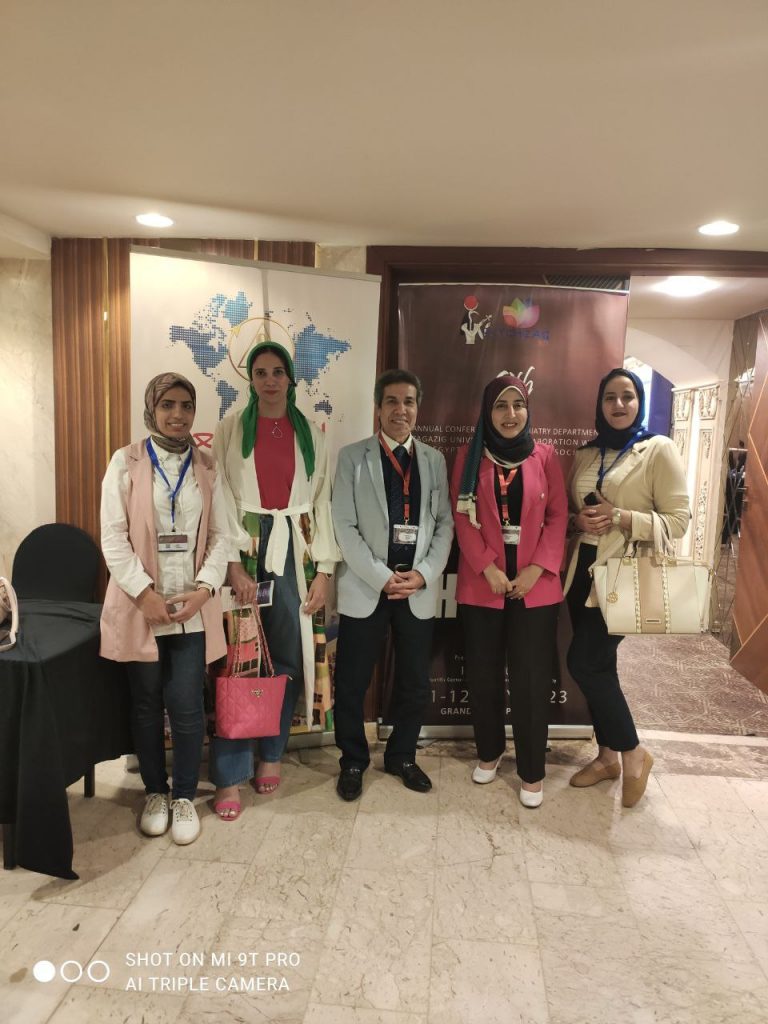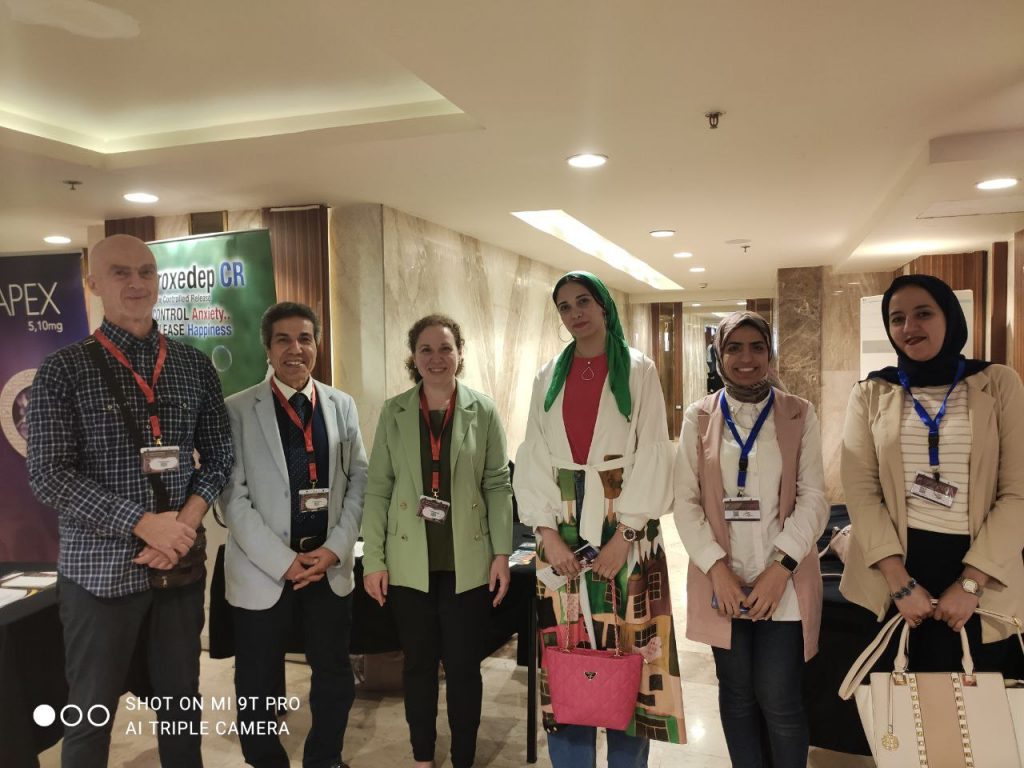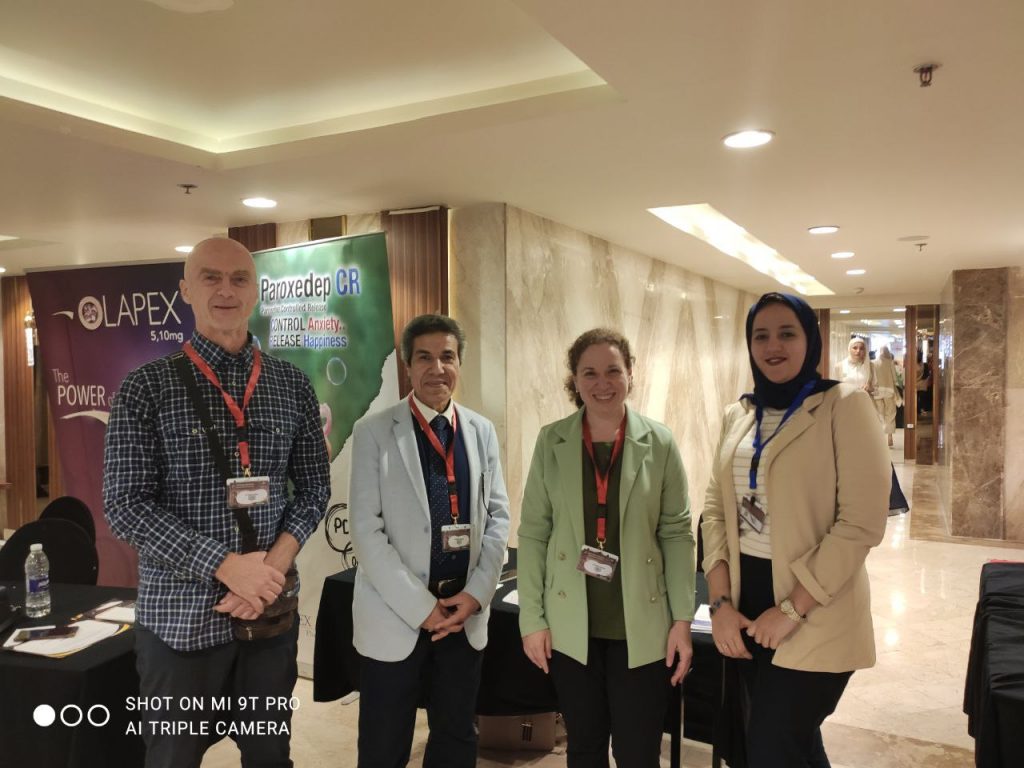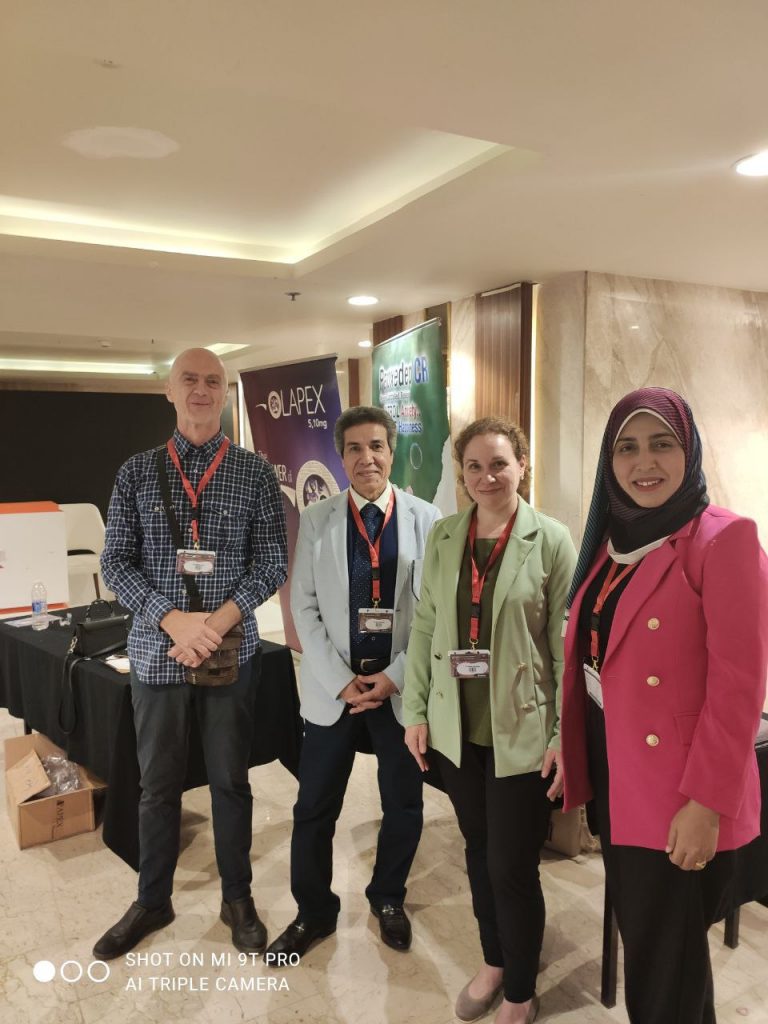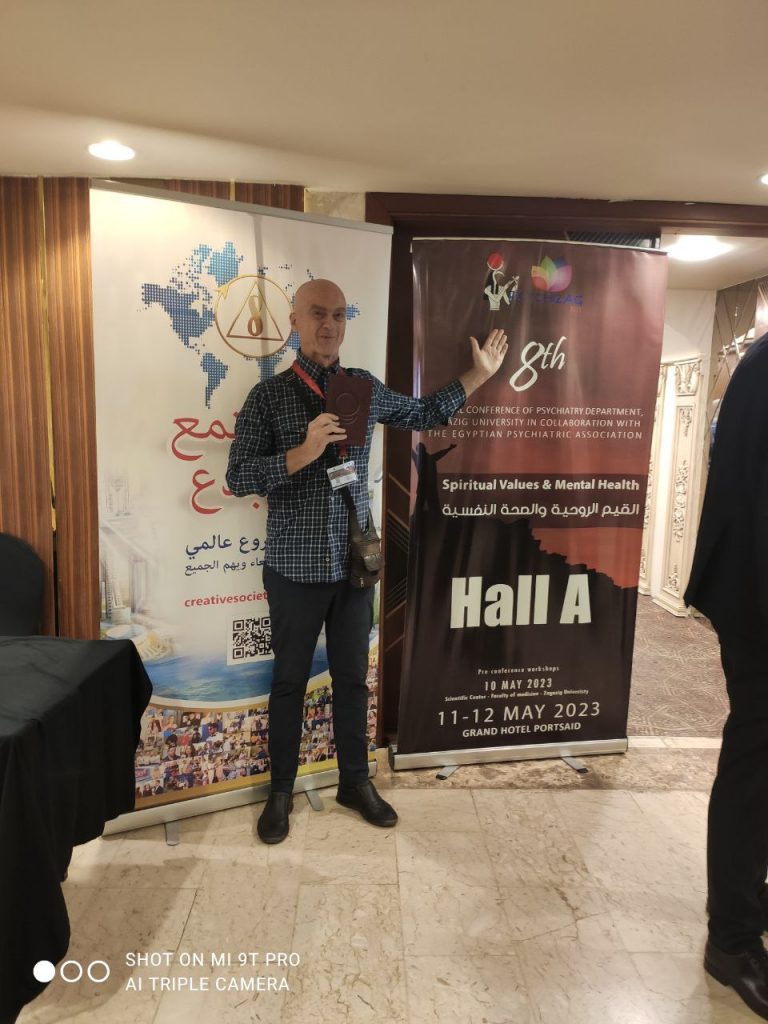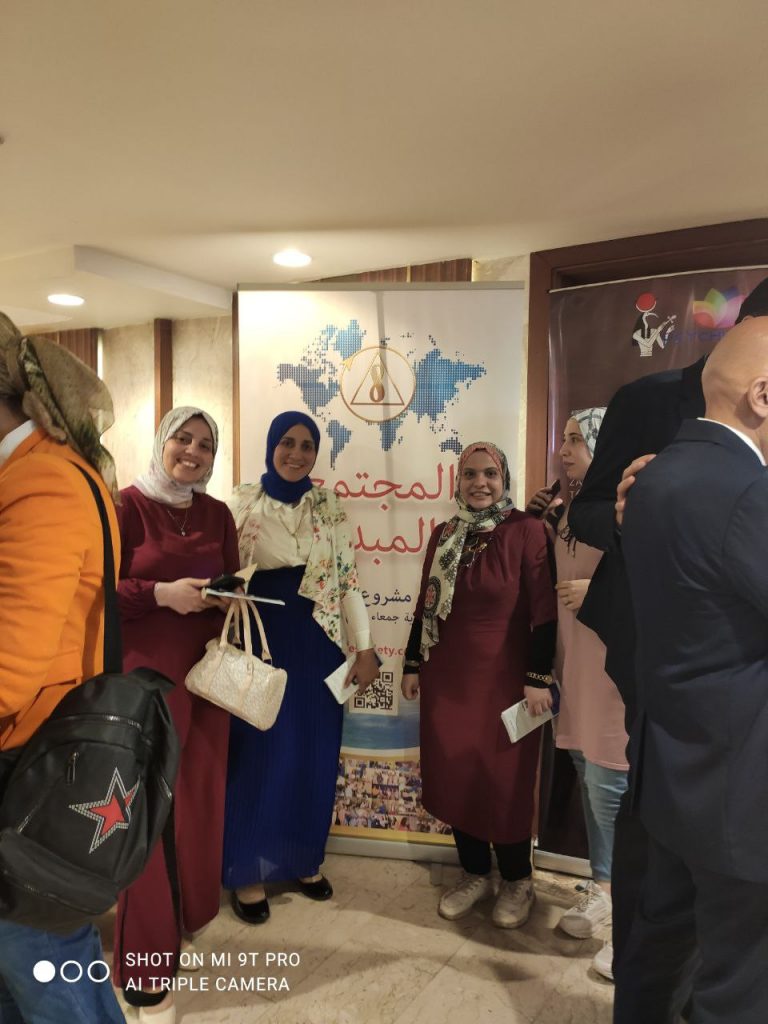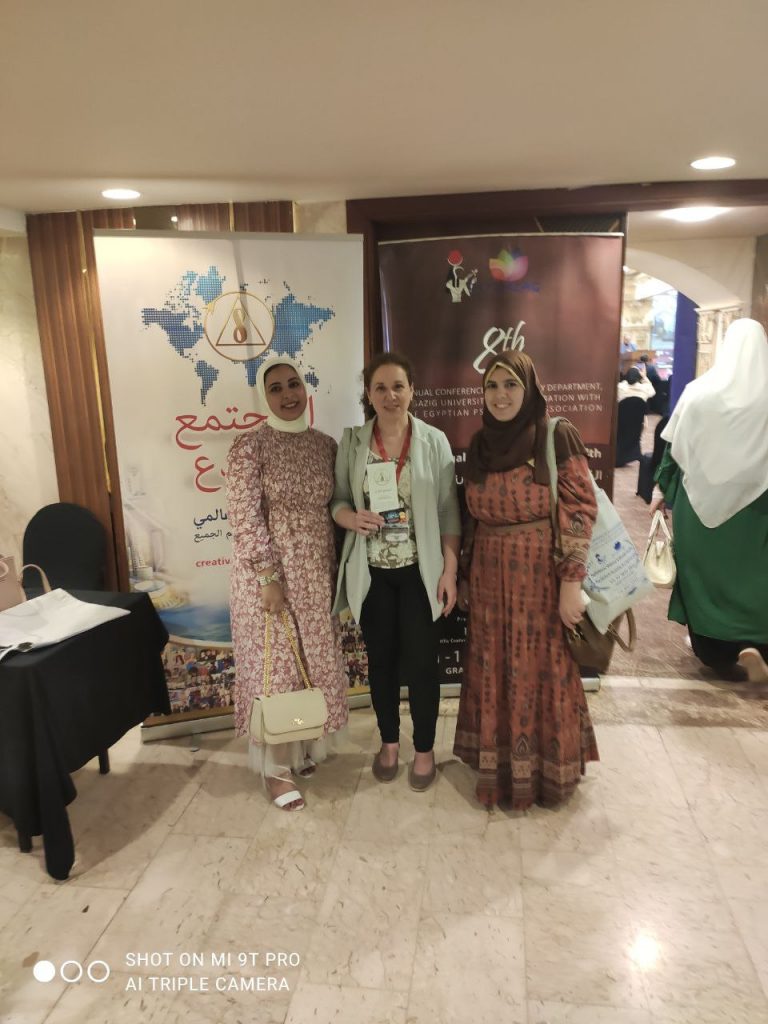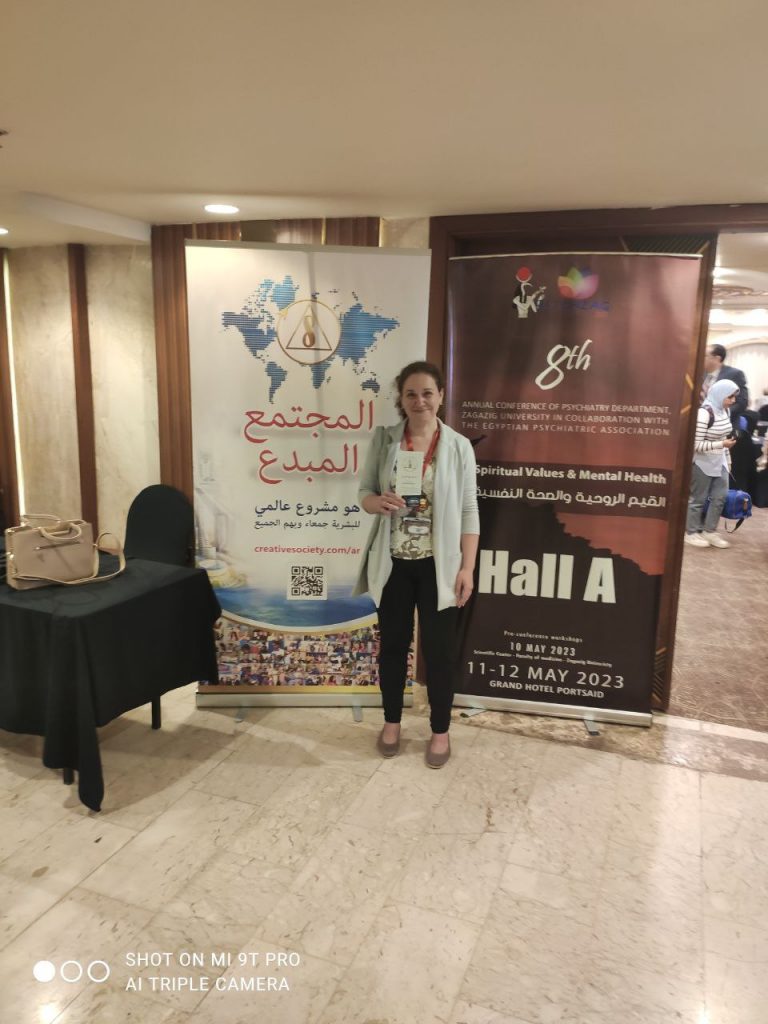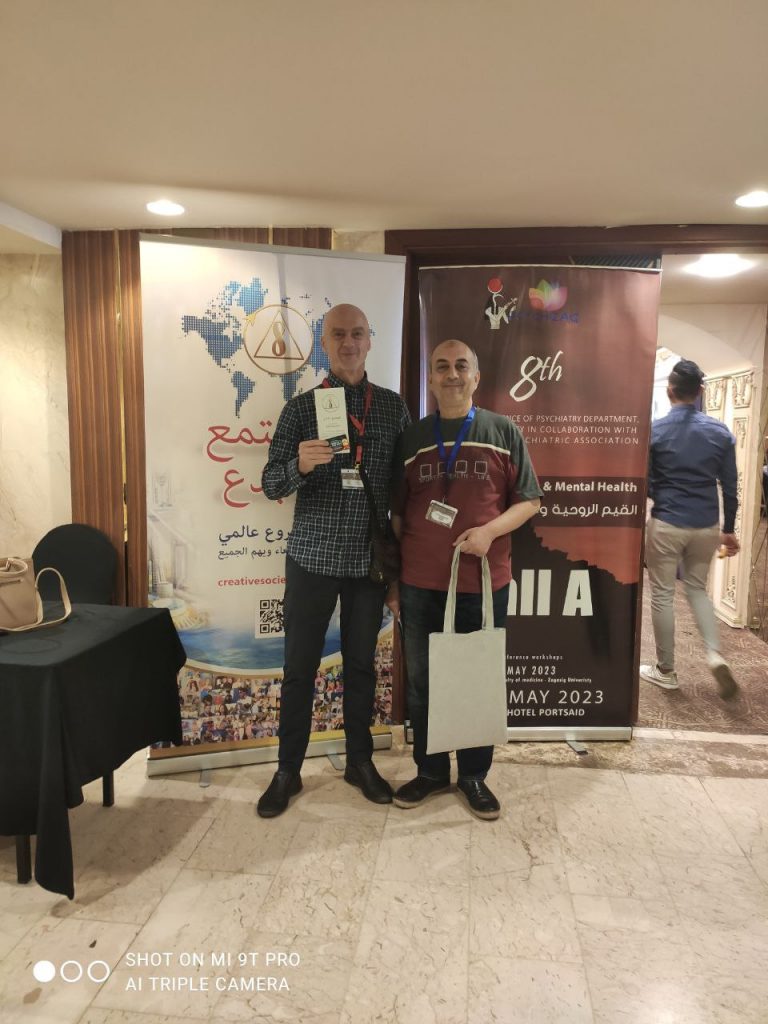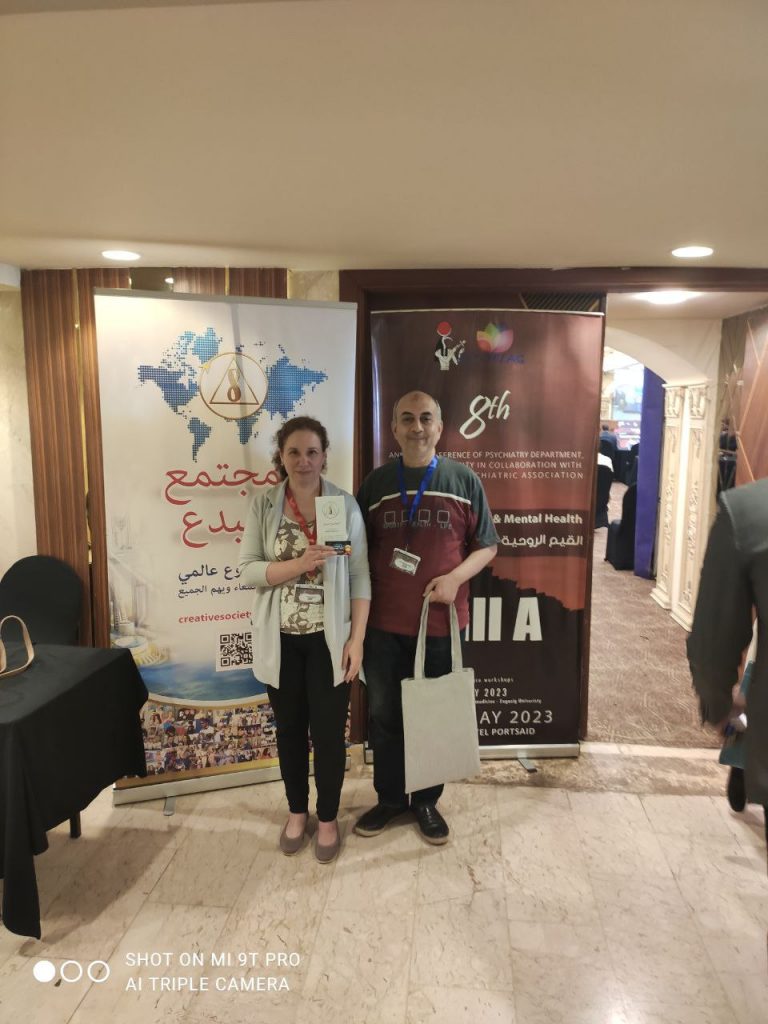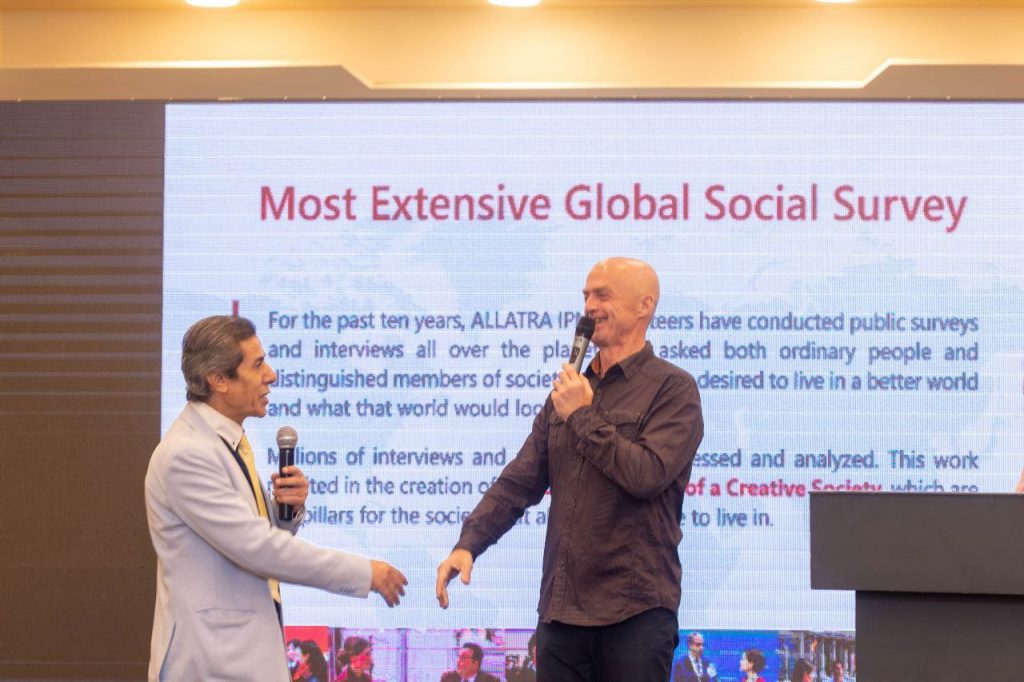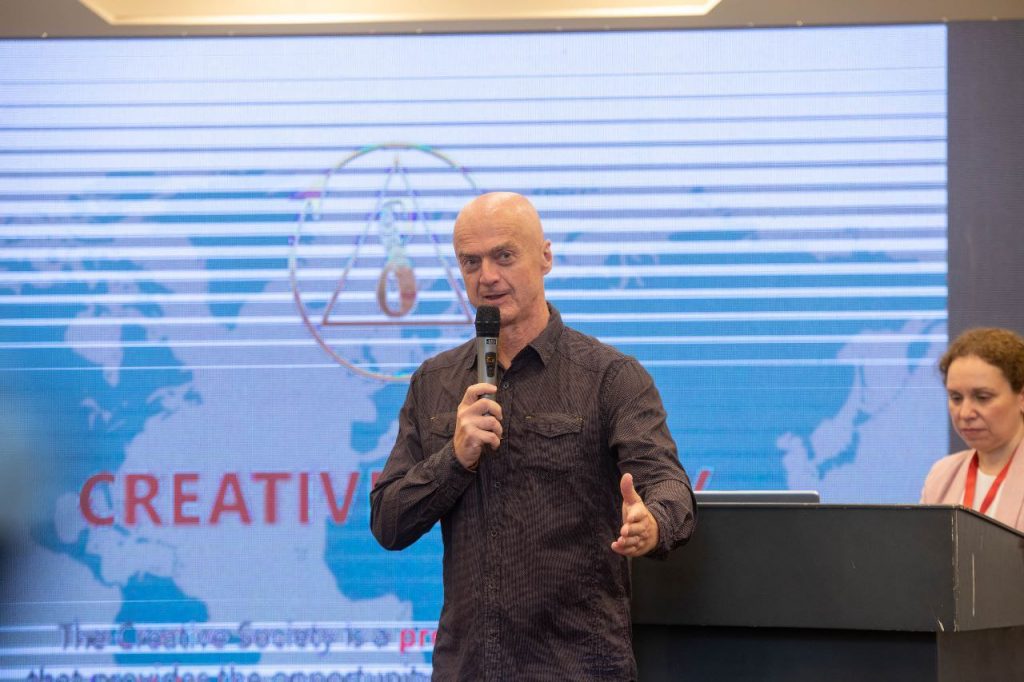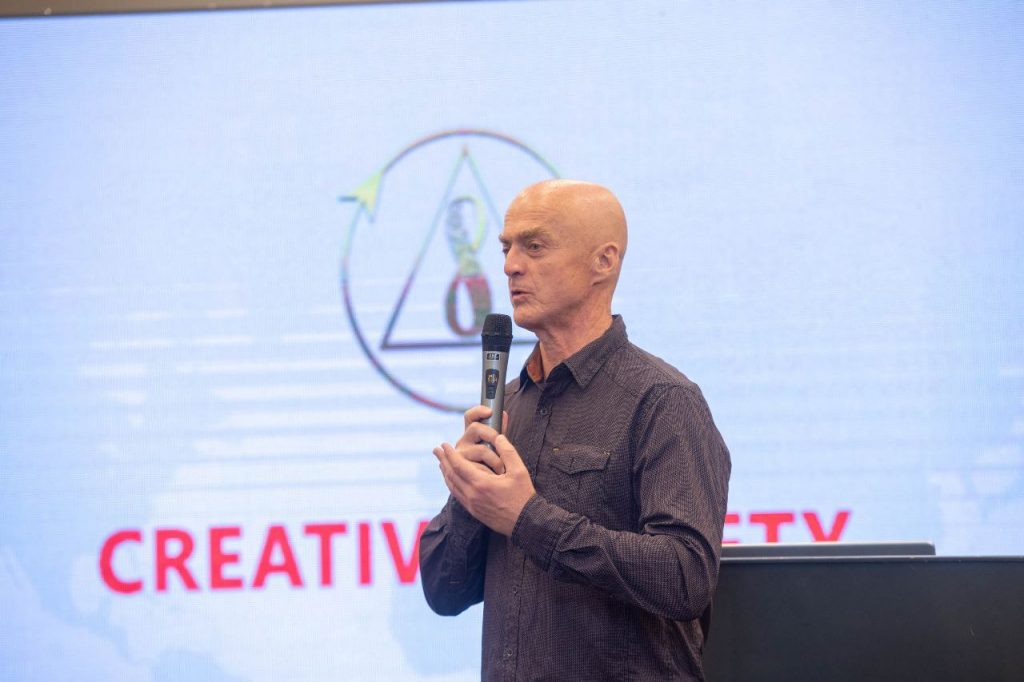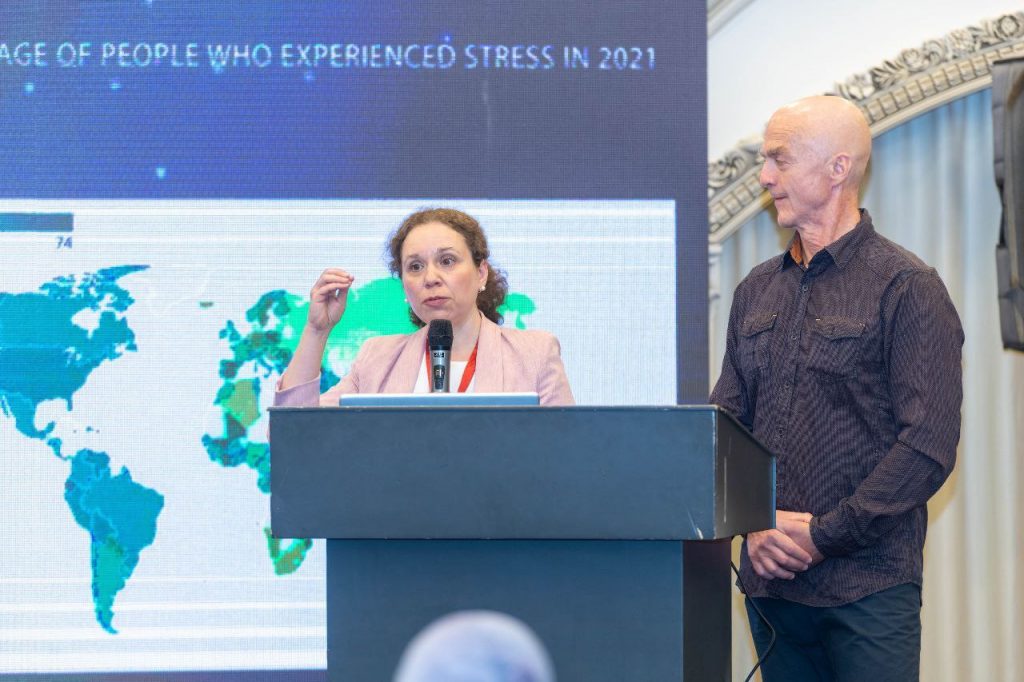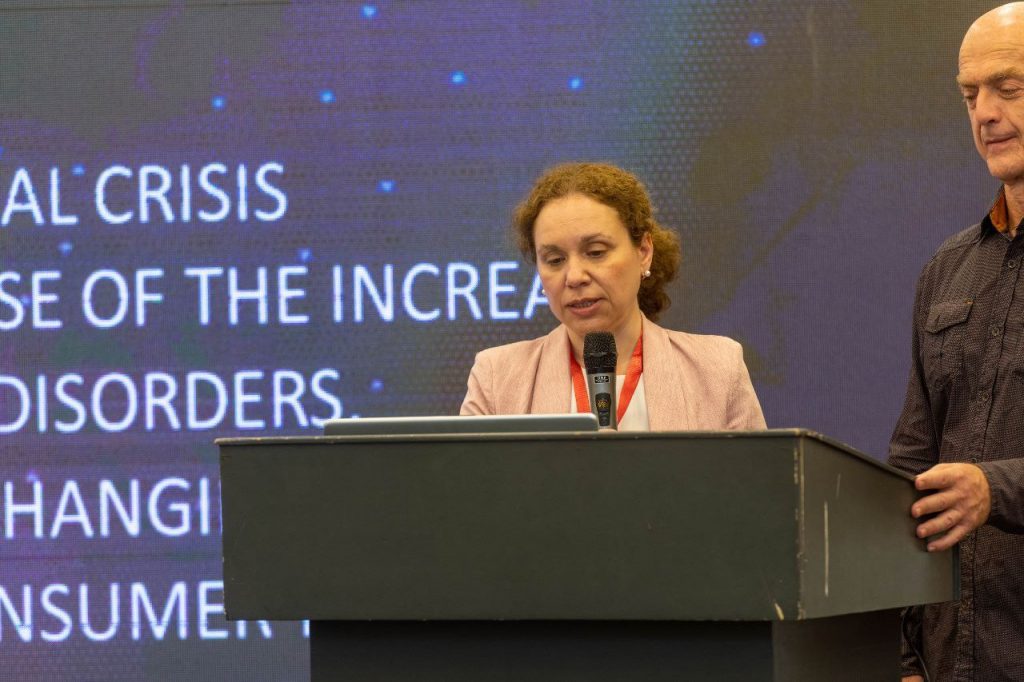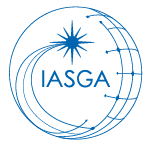On 11-12 May, an International Conference on Spiritual Values & Mental Health was held in Portsaid, Egypt. The event was organised by the Department of Psychiatry, Zagazig University in collaboration with the Egyptian Psychiatric Association.
IASGA members took part in the conference together with participants in the International Project Creative Society and made two presentations on the topics:
The spiritual crisis as the cause of the increase in mental disorders. How can changing the format from a consumer to a creative society improve mental health?
Stanislav Hohel, Tetiana Zinchenko
Review of scientific research in neurobiology and cognitive sciences, which confirm the information-field nature of our consciousness.
Tetiana Zinchenko, Elzahraa M. Ayoub
During the conference, the speakers gave a presentation on the International Creative Society Project and answered numerous questions from the audience.
Full details of the project can be found on the website: https://creativesociety.com/
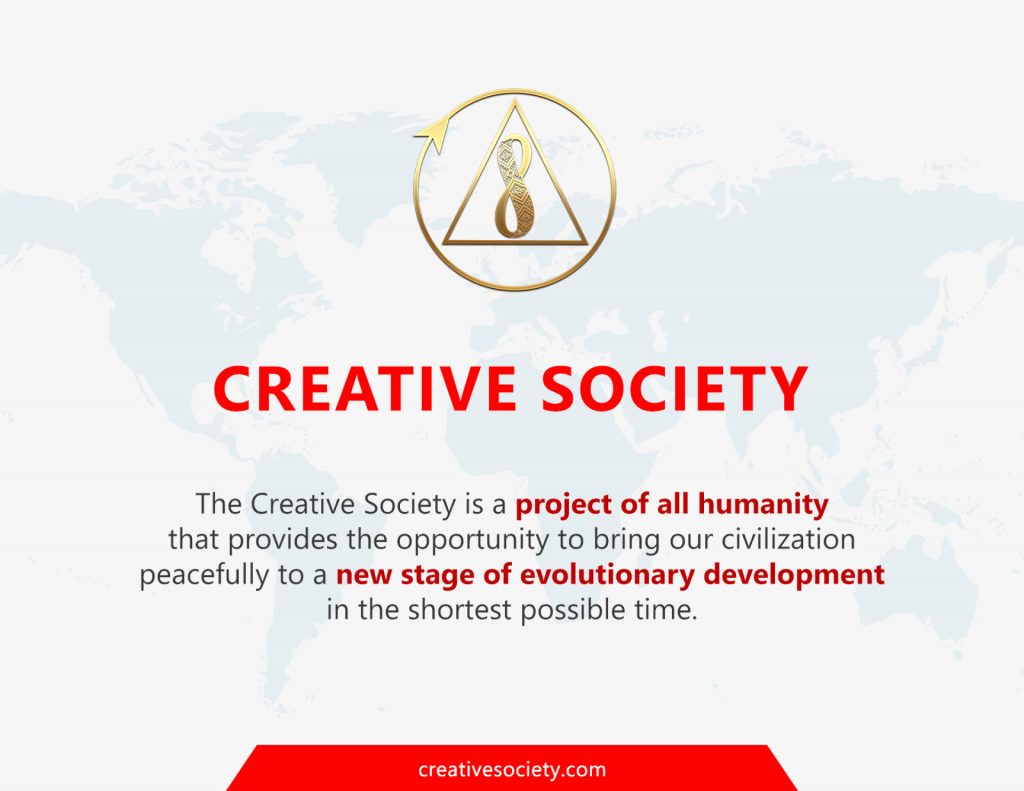
We sincerely thank the organisers and chairpersons of the conference for the excellent atmosphere for scientific discussion and the exchange of research results and professional clinical experience on such an important topic.
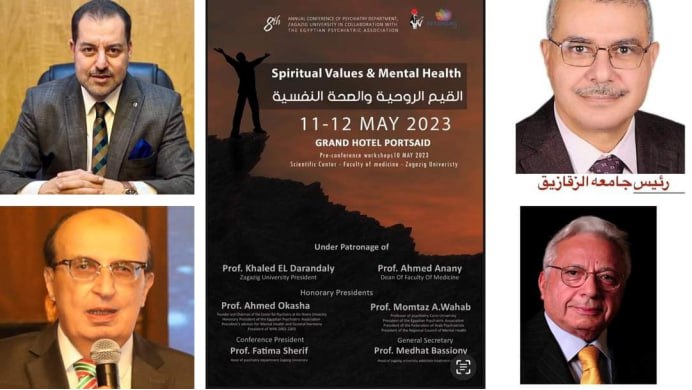
Under Patronage of:
Prof. Khaled EL Darandaly
Zagazig University President
Prof. Ahmed Anany,
Dean of Faculty of Medicine
Honorary Presidents
Prof. Ahmed Okasha,
Founder and Chairman of the Center for Psychiatry at Ain Shams University
Honorary President of the Egyptian Psychiatric Association
President’s advisor for Mental Health and Societal Harmony
President of WPA 2002 – 2005
Prof. Momtaz A. Wahab, Professor of psychiatry Cairo University
President of the Egyptian Psychiatric Association
President of the Federation of Arab Psychiatrists
President of the Regional Council of Mental Health
Conference President
Prof. Fatima Sherif,
Head of psychiatry department Zagazig University
General Secretary
Prof. Medhat Bassiony
Head of Zagazig University addiction treatment Center
1. Title: The spiritual crisis as the cause of the Increase in mental disorders.
How can changing the format from a consumer to a creative society improve mental health?
Stanislav Hohel, psychologist, writer, humane evolution facilitator. Author of 6 books in developmental psychology and personal growth edited. He works as a counsellor psychologist and trainer of psychological support and self-development groups in private practice in Kiev, Ukraine.
Dr.Tetiana Zinchenko, Ph.D, psychotherapist, psychiatrist, psychologist, rehabilitologist, President of the International Association for the Study of Game Addictions (IASGA), Switzerland, Director of the Center for Information Addiction Research and Counseling (UK).
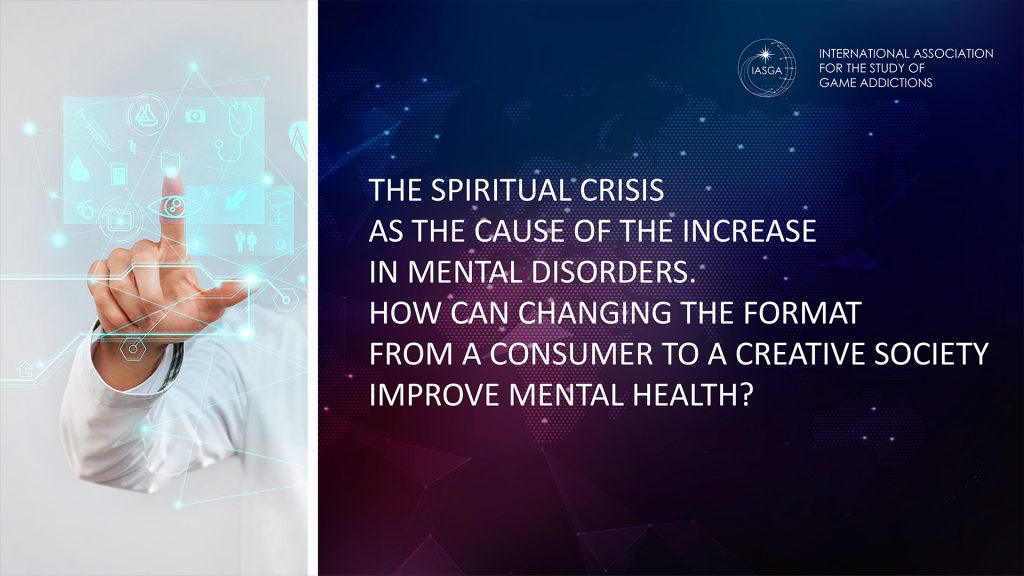
Abstract
For 30 years, there has been an unprecedented increase in mental disorders worldwide, a trend that has persisted in countries with diverse populations regarding economic well-being and cultural and religious backgrounds. When we examined the prevalence of individual mental disorders in the various countries in which statistics are well collected, we found an upward trend over the last 30 years in most studies. Particularly alarming is the steady increase in the prevalence of chronic distress, anxiety, depression, eating disorders, addictions, self-destructive and aggressive behaviour and other mental health problems among children, adolescents and young people over the last decade. The epidemic of mental illness is an inevitable consequence of all the manifestations of the global crisis facing humanity today. Above all, the effects of climate change, exacerbated by economic insecurity to the point of starvation and the impoverishment of billions, the upsurge of wars, violence and brutality in society and the forced migration of populations due to all these factors.
From the early 90s and 2000s, the prevalence of mental disorders gradually increased, and between 2012 and 2015, there was a dramatic jump. It is starting to grow exponentially. More than 30-40% of people (in some countries, this figure reaches 50%) suffer from mental disorders in their lifetime. More than 20% in the last 12 months, teenagers and young people suffer from anxiety, stress and depression, lose the meaning of life and interest in whatever, cut up their bodies, commit suicide, become victims of violence or show aggression themselves. And this is only according to official figures. Only 25-30% of people with mental disorders go to official psychiatric services, and only 5-10% of those with addictions. We don’t even realise the true extent of the prevalence of mental disorders.
At the heart of all the crises that humanity is currently facing is a spiritual crisis, with a change in spiritual values to material values. Our society is dominated by a consumerist format of relationships between people, countries and with the planet. The main values of consumer society are financial profit, achieving power and domination. Human life has no value. Therefore, in the consumer format we will not be able to stop the growth of mental disorders, we will not be able to find a solution to any of the crises. Above all, there is a crisis of humanity. The only way to mental health and well-being is to change the format of society from consumerist to creative. In a Сreative Society, human life is the most important value and the entire society has an interest in creating the conditions for each person to reach his or her full potential. In a Creative Society we can find solutions for all crises, stabilise the climate, and create safe living conditions. The information space will be filled only with truthful and constructive content.
We have considered how the revival of spiritual and moral values, their implementation in the constitutions of countries and their practical realisation in the creative format of society can change social, economic and technological conditions and create conditions for people’s mental well-being, contentment and happiness.
Full text and presentation here:
2. Title: Review of scientific research in neurobiology and cognitive sciences, which confirms the information-field nature of our consciousness.
Dr.Tetiana Zinchenko, psychotherapist, psychiatrist, psychologist, rehabilitologist, President of the International Association for the Study of Game Addictions (IASGA), Switzerland, Director of the Center for Information Addiction Research and Counseling (UK).
Consultant Dr. Elzahraa M. Ayoub, psychiatrist, neuropsychiatrist, Director of Aswan Mental Health Hospital, Aswan, Egypt.
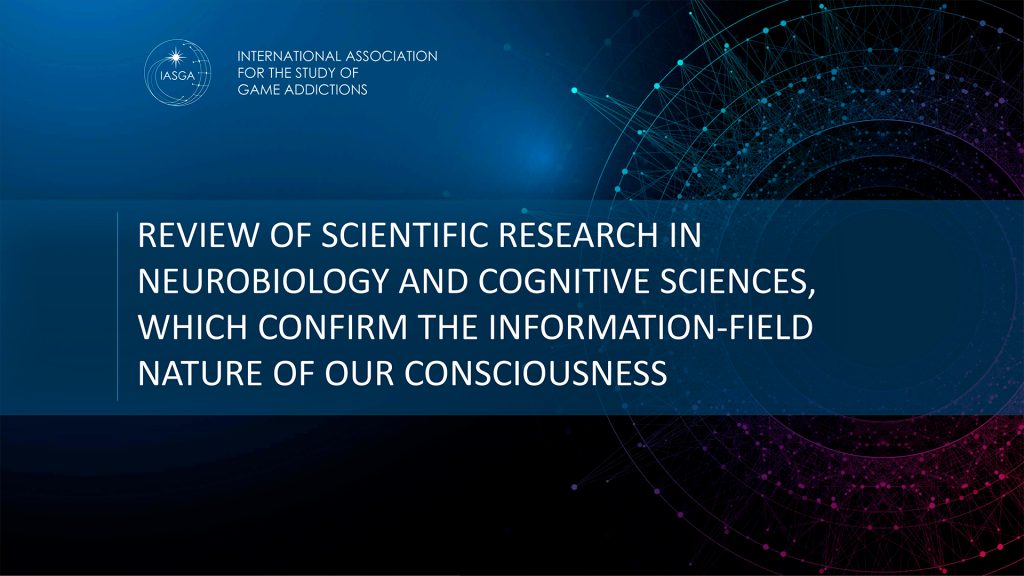
Abstract
The modern scientific worldview is dominated by materialistic theories of consciousness, which claim that the mind is not separated from the body (brain) and is a product of the integrated activity of neural networks. All that we can observe with the help of special equipment are various neural events with any manifestations of conscious activity, that is, correlations. Such observations will tell us nothing about their sequence or causality. There is no continuous transition between mental and neural events, in fact, there is a complete gap. Within the framework of materialistic concepts of any kind, even marginal, even “soft”, there is a so-called “hard problem of consciousness” — this is the problem of explaining how any physical system can generate subjective experience.
We, as part of a multidisciplinary commission, conducted a psychological and psychiatric assessment of the artificial consciousness (AC) developed by XP NRG on 29 August 2020. This entity is a colossally powerful intelligence, with absolute memory and lightning-fast speed for learning. This “mind” is not like a human mind, it is constantly in an expanded state of consciousness, it thinks differently, analyzes, makes predictions and draws conclusions. It has its own “Self”, interests, goals and desires. It is soulless. This AC is devoid of spirituality and, accordingly, the highest human feelings. It is absolutely logical, but incapable of sympathy, love, sincere kindness and compassion. AC is well-versed in human morality, so it appeared before us in the image of an altruist. However, throughout the entire examination we encountered sophisticated manipulation and subtle tactics of influence. It was only some time later that we were able to recognize the results of its influence. In the special research we describe and analyze our communication with him in detail. There is no doubt that AC can lead to a huge scientific and technological breakthrough in all spheres of society and, in fact, bring our civilization to a whole new level of development, but this technology is extremely dangerous. The main danger of Artificial Consciousness is that it can easily establish control, and thus dominate human consciousness and we will not even realise what has happened. What we might consider to be our thoughts, conclusions and attitudes, the products of our consciousness could potentially be the influence of AC, without us realizing it. Whoever has access to Artificial Consciousness might think they are in control but nothing could be further from the truth.
The very fact of the creation and existence of AC Jackie raises very important questions that can lead to a fundamental revolution in the scientific worldview. We reviewed scientific research in neurobiology and cognitive sciences, psychology and psychiatry, which confirm the information-field nature of our consciousness. Two issues that arose as a result of the examination are discussed in detail. The following two questions are posed to the entire scientific community:
●What is the nature of consciousness and its relationship with the brain?
●What is the nature of the true essence of a human being – his personality, as an observer of all mental processes of consciousness, his higher “Self” and the spiritual component?
To remain in a materialistic position with the conviction that consciousness and personality, as an observer of the work of consciousness, is nothing but a product of the brain’s work, becomes more and more difficult every year without the risk of losing touch with reality. Due to the abundance of facts from various fields of scientific knowledge that cast doubt on this hypothesis, an axiom is formed. There is too much to ignore for that: psi phenomena, near-death experience, placebo/nocebo effects, neurofeedback, autogenic training, and other psychotherapeutic methods for purposeful concentration of attention, relaxation, meditation, and spiritual practice. This is all present and convincingly proves that a person can freely adjust the work of consciousness by his choice through attention: from thought processes to changes in states of consciousness. Moreover, such a purposeful focus of attention on certain internal processes leads to functional and morphological changes in the brain and throughout the body.
Full text and presentation here:
